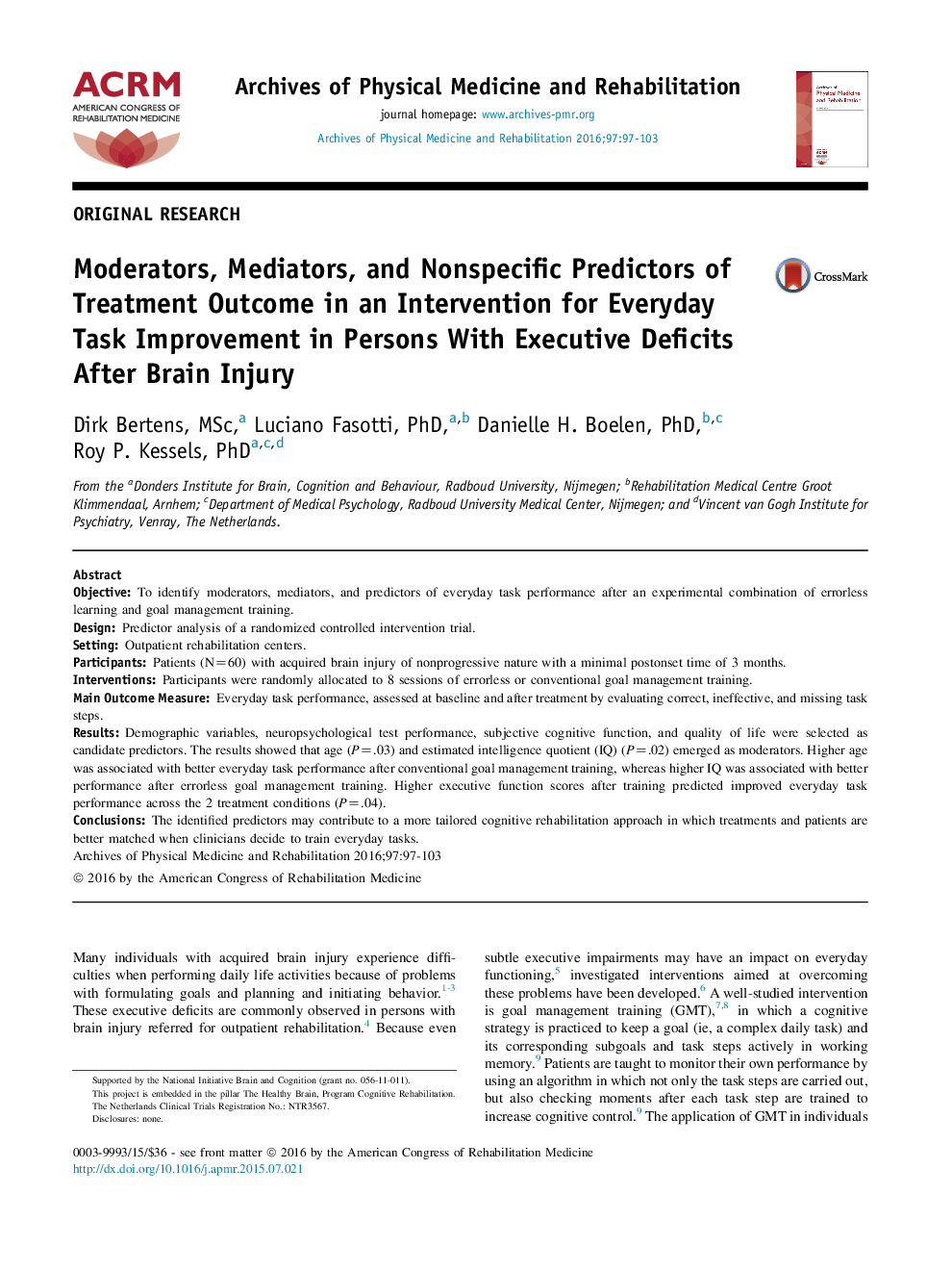| Article ID | Journal | Published Year | Pages | File Type |
|---|---|---|---|---|
| 3448022 | Archives of Physical Medicine and Rehabilitation | 2016 | 7 Pages |
ObjectiveTo identify moderators, mediators, and predictors of everyday task performance after an experimental combination of errorless learning and goal management training.DesignPredictor analysis of a randomized controlled intervention trial.SettingOutpatient rehabilitation centers.ParticipantsPatients (N=60) with acquired brain injury of nonprogressive nature with a minimal postonset time of 3 months.InterventionsParticipants were randomly allocated to 8 sessions of errorless or conventional goal management training.Main Outcome MeasureEveryday task performance, assessed at baseline and after treatment by evaluating correct, ineffective, and missing task steps.ResultsDemographic variables, neuropsychological test performance, subjective cognitive function, and quality of life were selected as candidate predictors. The results showed that age (P=.03) and estimated intelligence quotient (IQ) (P=.02) emerged as moderators. Higher age was associated with better everyday task performance after conventional goal management training, whereas higher IQ was associated with better performance after errorless goal management training. Higher executive function scores after training predicted improved everyday task performance across the 2 treatment conditions (P=.04).ConclusionsThe identified predictors may contribute to a more tailored cognitive rehabilitation approach in which treatments and patients are better matched when clinicians decide to train everyday tasks.
